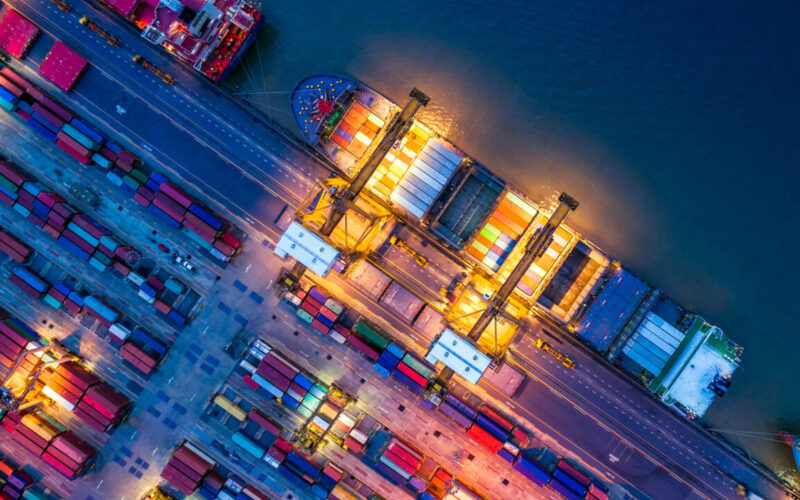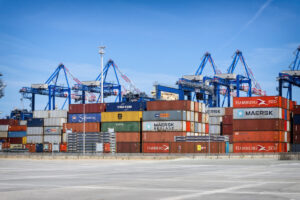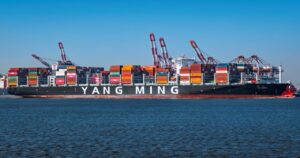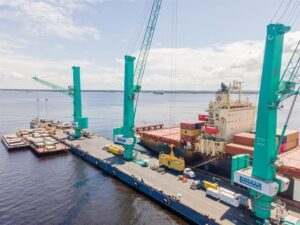Written by Mark Rosenberg, Senior Vice President – Commercial and Operations, DP World Europe
Next year is our chance to shape smarter operations and a more resilient supply chain network for Europe. But to take full advantage of these new ways of working, we – as supply chain operators – must underpin the evolution of our industry in partnership and sustainable action. This will ensure an equitable modernisation of our supply chain sector while minimising our impact on the natural world.
With this in mind, let’s explore the main shifts we can look forward to next year – and how to capitalise on them.
Resilience takes center stage
Supply chain resilience has become more than just a buzzword: it’s a strategic imperative.
Companies are reevaluating their supply chain strategies to build more robust and flexible networks capable of withstanding unforeseen disruptions as we enter 2024. This was also revealed in the 2023 Trade in Transition report, commissioned by DP World and led by Economist Impact – 47 per cent of companies used diversification as their primary reconfiguration strategy to reduce costs and increase resilience. Because, let’s face it, we’ve experienced our fair share of them – it’s about time we took back control.
Diversification is one such strategy for overcoming disruption in all its forms. This works by incorporating multiple suppliers and distribution channels to keep goods flowing regardless of the disturbance. DP World’s acquisition of Syncreon and Imperial this year is just one of the ways we’re leading this trend, creating a broader, agile supply chain network that’s more reliable for our customers next year and beyond. Should the Rhine experience a drought again next year, a diverse transport portfolio will reduce our dependence on any single market or trade route so we can keep customers happy.
Of course, visibility is key to ensuring this diversified landscape runs smoothly and is proving to be another key focus area for the new year. And where there’s visibility, there’s digitalisation.
Work smarter, not harder
Digitalisation, via deploying AI-driven technologies and end-to-end connectivity, is a vital tool in the battle for greater visibility. It can help us gather analytic data to proactively identify risks and mitigate them before they happen.
Visibility is particularly prevalent in this time of geopolitical instability and rapidly changing climate. Both factors contribute to volatility and impact on trade volumes and they’re not going to disappear in the new year. In fact, research shows that ports and shipping are in a period of profound uncertainty and there is no clarity on the direction, speed and interrelations between key drivers of change, including tackling sustainability issues or geopolitical conflicts.
AI and digitalisation, however, give us a lifeline by generating valuable data, which lends itself to a new era of continuous improvement and contingency planning. This is a very different world to the one we operated in pre-pandemic, where we reacted to individual problems as they arose rather than treating our industry’s improvement as an ongoing journey. Armed with data, we can learn, predict and adapt to scenarios faster, creating a sound foundation for navigating whatever the future has in store.
READ: Why Resilient Supply Chains Need an Electronic Bill of Lading
In fact, this great ‘datafication’, making data more central to how we function as supply chain operators, will also give supply chain operators a customer-centric edge. After all, we can only stay competitive if we evolve to meet customer needs and wants. Data gives us the power to give our investors and customers more concrete information about the status of their goods, meaning they can make informed long-term business decisions, locking in value in this period of economic uncertainty.
Making better possible
The supply chains of 2024 sound great, don’t they? However, to hark back to my opening statement, if we are to make any of this a reality, we must utilise partnerships and embed sustainability into how supply chains operate.
Building strong relationships throughout our supply chains fosters collaboration and enhances greater responsiveness during disruptions. Combined with widespread digitalisation, we have it within our power to create a harmonised ecosystem that informs and protects everyone while enhancing how goods flow – from the supplier to to end customer – so we can all avoid unnecessary financial and environmental costs.
Trust is obviously a key element of this – and with digitalisation, there is still some way to go before we can assure everyone how its benefits far outweigh its cons. Just this year, for example, DP World in Australia (which handles 40 per cent of the country’s imports and exports) was hacked. However, rather than be deterred by this experience, it has driven us to invest in digitalisation more so that it can continue to be a vehicle for smarter trade. Implementing robust cybersecurity measures ensures vigorous procedures are in place to protect our services – and so that our partners can continue to rely on us.
Greener together
Sustainability, meanwhile, continues to be top of the agenda – particularly with the recent success of COP28. The conference showed our industry must change. Governments and consumers are demanding greener supply chains, prompting companies to reevaluate their carbon footprints and embrace eco-friendly initiatives too.
As operators, there are different ways for us to expedite this vision in line with our dreams of efficiency and resilience. From the adoption of electric vehicles in transportation to the implementation of circular supply chain models, sustainability is already proving to be a driver of innovation in our services. And partnerships can make all these equitable across markets.
For DP World, our partnership with APM Terminals is the most recent example of this in action. Together, we are providing a clear roadmap for electrifying Europe’s port operations within eight years through conclusive research into battery-electric container handling equipment (CHE). In short, we’re making scalability, environmental responsibility, and substantial cost savings possible for Europe’s supply chains.
READ: DP World joins First Movers Coalition to reduce carbon emissions
Similarly, DP World is spearheading the ‘Join The Move to -15°C’ initiative: to raise the standard temperature for shipment of frozen food from -18°C to -15°C. After extensive research, we have learned that this small change can reduce our sector’s carbon emissions by 17.7 million tonnes, saving 25 terawatts of electricity annually. Our coalition will help our peers make this change so we can curb our shared carbon footprint ahead of 2050.
A happier new year
The European supply chain industry is poised for a transformative year in 2024. Resilience, digitalisation, sustainability are set to be the driving forces shaping the logistics landscape, and proactively adapting to change will enable an ever-evolving, more efficient world of supply chain management.
READ: Building a Digitalisation Foundation for Port 4.0
Let us navigate these trends with strategic, data-driven foresight and collaboration, ensuring that our supply chains endure the challenges and thrive in the face of them. And, most importantly, so that we can serve customers throughout the region more sustainably with every step we take.

Mark Rosenberg joined DP World in 2020 as Commercial and Marketing Director for the Europe region, bringing extensive leadership experience from Maersk where he worked for over two decades in senior leadership roles in Sweden, UAE and the Netherlands.
In his current role as Senior Vice President – Commercial and Operations for Europe, Mark leads the commercial strategy team and partners closely with CEOs across Europe to identify new products and areas for continuous growth, and ensures the region’s commercial and operational entities are in lockstep to successfully deliver the services we sell to customers.








